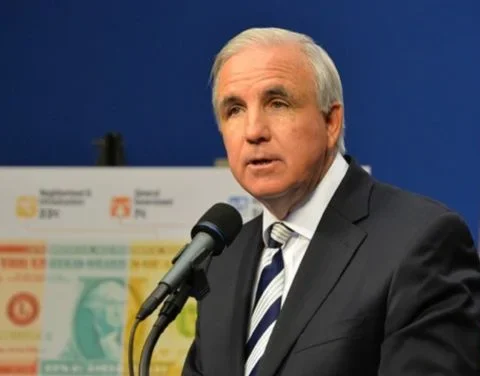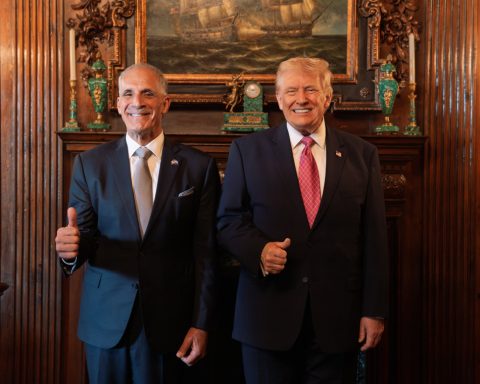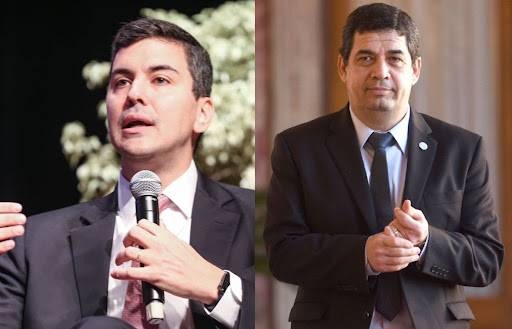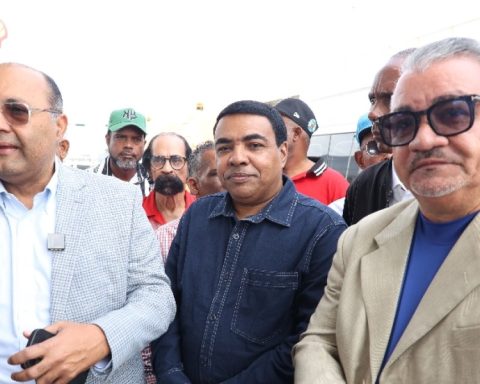A wide exchange, with critical, methodological and theoretical moments, characterized the third meeting of the first secretary of the Central Committee of the Communist Party and president of the Republic, Miguel Díaz-Canel Bermúdez, with representatives of the state business system.
The new meeting ratified the need to maintain a systematic space for debate with the socialist state business community to continue seeking consensus based on the current global and national economic complexity, said the Head of State.
The meeting had as its axis a presentation by the Vice Prime Minister and Minister of Economy and Planning Alejandro Gil Fernández, who analyzed four main topics.
One of them was the process of constitution of state MSMEs (micro, medium and small companies); and another, the application of policies to make salary remuneration more flexible in the state business system.
It also made an evaluation of the results of the profit distribution process by the companies at the end of the third quarter of the year; and an analysis of wholesale and retail prices.
The results and problems evidenced by dissecting these issues led to a question from the Vice Prime Minister to the business community: what to do to make the most of the numerous and profound transformations that the state-owned company has undergone? And how to guarantee economic growth in 2022 based on greater efficiency and responsibility of these entities and those who direct them?
In the third meeting of Díaz-Canel with representatives of the business community, Salvador Valdés Mesa, Vice President of the Republic; Joel Queipo Ruiz, member of the Secretariat of the Central Committee of the Party and head of the Economic department; Jorge Luis Perdomo Di-Lella, deputy prime minister, and several heads and heads of portfolios.
OF ACTORS AND MISSIONS
When evaluating the process of constitution of state MSMEs, started last September (together with the private sector), Gil Fernández stressed that this confirmed that the socialist state enterprise (EES) is the fundamental actor in our economy.
He explained that this is part of the country’s decision to provide the EES with the greatest possible flexibility and the greatest autonomy in its management. He purposely recalled that state MSMEs are similar to private ones in terms of the management model. And he also elaborated on the characteristics of the subsidiary companies.
Regarding the application of the policy to make salary compensation more flexible, he emphasized that the objective is to increase productivity and business efficiency. It is an unprecedented measure and its application is gradual, he stressed.
The decision has been implemented, for example, in 158 companies, and may benefit some 238,000 workers from various sectors. Its impact, which must be reflected in productivity, will be verified at the end of 2021, as its application began in October.
Regarding the distribution of profits at the end of the third quarter of 2021, it was reported that 755 entities have applied it.
Gil Fernández pointed out, however, that the obtaining of profits by a company is not necessarily due to increased productivity and efficiency, which is how it should be. It can also occur due to price increases (without generating more wealth) or not executing expenses (not providing maintenance, for example), which is not equal to savings. And that is not why this measure was taken, he warned. This is a process where common sense and business honesty must prevail, he stressed.
Regarding the behavior of producer prices, he reported that they have grown moderately, below what was designed in the Ordering Task; But the same is not the case with retail prices, where inflation is in the double digits.
He purposely commented that more than 500 state-owned companies are in losses so far this year, and many are aspiring to receive subsidies from the State Budget – but this is not enough – or to artificially raise prices.
Prices reflect costs, and these are passed on; So the question is what are the real costs? said the Deputy Prime Minister. This is, he said, the challenge to be solved. If the prices don’t cover the costs, you have to ask yourself why.
Concatenated the relationships between utility and prices, Gil Fernández demanded to be more rigorous in the role that corresponds to a company director.
WHAT IS A SOCIALIST STATE COMPANY
In the conclusions of his 3rd Meeting with representatives of the state business system, the President of the Republic recalled that the problems in the functioning of the socialist state enterprise were addressed and extensively debated in the 8th Party Congress and are part of the document Ideas, concepts and guidelines emanating from that great appointment.
He reiterated the concept that the main cadre in a state entity is its director or director, so that their behavior must be marked by science, ethics and politics. The business community has to be able to interpret the problems posed by the reality we live in, he conceptualized.
He later indicated that socialist democracy must also take shape in the company, which is why, among other functions, it has to establish spaces for the accountability of managers to the workforce.
Workers must be a fundamental part of the company’s debates, identifying and posing the problems that exist, proposing how to solve them, working on their solution and controlling what is done. That dynamic, he explained, will take us to a higher moment.
He also stressed that for more than a year measures have been approved so that the socialist state enterprise gains more autonomy; However, there are still managers who do not know what has been approved. Why is there such a time gap between what is approved and when it is applied? He asked.
With regard to wage flexibility, he pointed out that logic, rationality and political elements must prevail in this. Its correct or incorrect application strengthens the company or deforms the company, he defined.
On the artificial rise in prices, he explained that the first thing an entrepreneur must analyze is what inefficiency is, to solve it and thus lower costs. This is an analysis that is not being done in all entities, and he gave as an example that the indirect workforce is still high.
In a company with problems with costs – I continue analyzing the First Secretary of the Central Committee of the Party -, you have to make a complete and comprehensive analysis of the efficiency, the structure, the balance sheets … What cannot happen is that go the most comfortable way, that of raising prices or asking the State Budget to subsidize it.
When developing the concept of social responsibility of a company in socialist society, he explained that economic entities should be part of local development; they must be open to popular control; and they must participate in the elimination of the inequalities that still persist, addressing the vulnerabilities in the neighborhoods where it is located.
Complying with social responsibility also happens, in the first place, because the company fulfills its corporate purpose, Díaz-Canel stressed. It is necessary to have responsibility towards the internal and responsibility towards the external, from the social to the environmental – he emphasized – and that requires that all this form part of its strategic planning.
The President of the Republic also analyzed the application of the three pillars of the Government in companies (computerization, science and innovation, and social communication), and the policy of cadres, especially the attention to young professionals.
The present – Díaz-Canel pointed out in the conclusions – has to be developed with an ideological and economic approach, and in this it is essential that businesswomen and businessmen return again and again to Marxist political economy.
Marxism provides the method, explains the challenges of building socialism. It is the political foundation in socialism; and a socialist company is not only to produce profits, profits; has a social commitment.
We always have to return to Marxism, “he reiterated,” because the day we renounce theory, we will enter the path of socialism blindly. Marxist theory does not give recipes; it is the method to find the solutions.

















